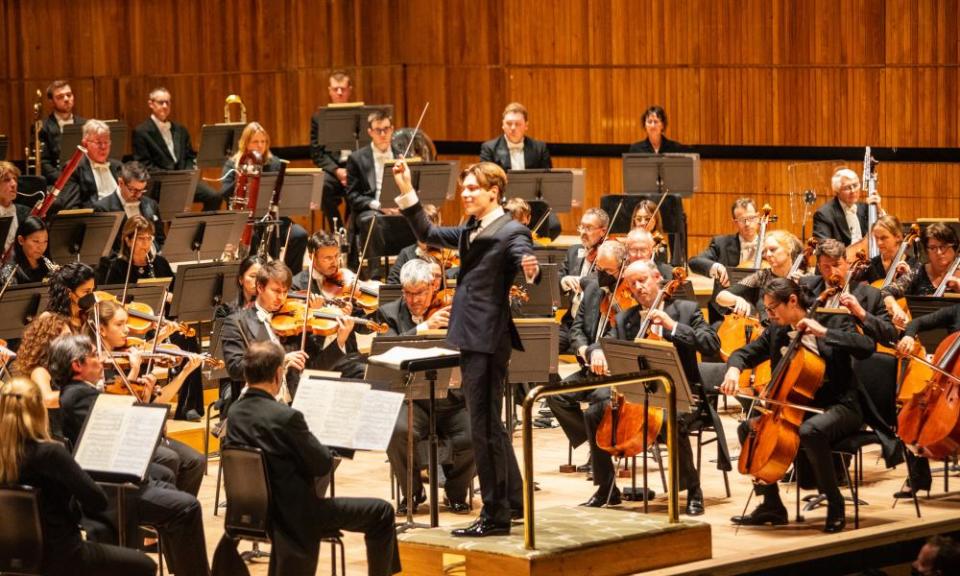LPO/Mäkelä review – anticipated debut sees young Finnish conductor blend excitement with refinement

Royal Festival Hall, London
At just 25, Klaus Mäkelä combines the vivaciousness of youth with a flawless precision to startling and exquisite effect, aided by an immaculate LPO
Chief conductor of the Oslo Philharmonic and music director of the Orchestre de Paris at the age of just 25, Finnish-born Klaus Mäkelä has been making waves in Europe of late, though we haven’t heard him in London. His much-anticipated debut with the London Philharmonic was the first of three appearances with the orchestra this season. Strauss, Rachmaninov and Prokofiev are among the composers he conducts next year. To begin with, however, he opted for French music, flanking Saint-Saëns’ first Cello Concerto with works by Messiaen and Debussy.
His approach in this repertory blends excitement with refinement and a painstaking attention to detail in ways that can be startling. The violent central section of Les Offrandes Oubliées, Messiaen’s early (1930) meditation on the crucifixion, was all the more unsettling for being done with such fierce, terrifying precision, its force offsetting the contemplative introversion of the outer sections, their dynamic gradations and tugging harmonies all wonderfully controlled.
The same qualities were very much apparent in the Debussy. Every shift in colour and detail in La Mer registered with perfect clarity while being integrated into the organic progression of the whole: Jeux de Vagues glittered restlessly; the final dialogue between wind and sea was tense, shot through with a sense of impending menace. Prélude à L’Après-midi d’un Faune, meanwhile, was sensuous rather than sensual, beautifully understated, the textures all ravishingly teased out. The LPO are on terrific form at the moment, and their playing here was immaculate.
Understatement and clarity, meanwhile, also characterised the Saint-Saëns concerto, dating from 1872, and a work which aspires to the formal perfections of the 18th-century classicism the composer so deeply admired. Truls Mørk was the soloist, patrician, supremely elegant and avoiding self-conscious showiness, perhaps fractionally too much so in the finale, where a little more extrovert bravura might not have come amiss. Mäkelä, meanwhile, kept the orchestral textures wonderfully delicate and transparent so that every note of Saint-Saëns’ counterpoint was crystal clear and simply exquisite.

 Yahoo News
Yahoo News 